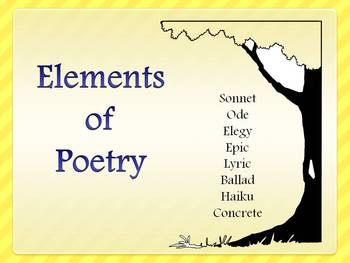The Markings of a Poet: Beyond Inspiration
While inspiration fuels the fire, it’s the characteristics of the poet that turn that spark into a lasting flame. Here’s a glimpse into the qualities that often define those who navigate the world with a poet’s heart:
-
Deep Observation: Poets aren’t passive observers; they’re detectives of detail. They possess a keen eye that dissects the world, unearthing the extraordinary within the ordinary. A raindrop on a windowpane or the worn cracks in a sidewalk become portals to deeper meaning.
-
Sensitivity: Poets are attuned to the emotional currents of the world, both within themselves and around them. They possess a strong emotional intelligence, allowing them to empathize deeply and translate those feelings into evocative language.
-
A Playful Mind: Language is a poet’s playground. They delight in the music of words, the dance of rhythm and rhyme, and the power of figurative language. They experiment, pushing boundaries and finding new ways to express the nuances of experience.
-
Curiosity: A poet’s thirst for knowledge is insatiable. They have a persistent “why?” that drives them to explore the world, delve into human nature, and question everything they encounter. This curiosity fuels their creativity and broadens the scope of their work.
-
Discipline: The romantic image of the poet waiting for inspiration can be misleading. Crafting compelling poetry requires dedication and discipline. Poets hone their craft through regular practice, revision, and a willingness to learn and grow.
-
Resilience: The creative process isn’t always smooth sailing. Poets face rejection, self-doubt, and periods of writer’s block. However, they possess the resilience to push through these challenges, their passion for their craft driving them forward.
-
A Deep Well of Empathy: Poets strive to understand the human experience in all its complexities. They connect with the joys and sorrows of others, weaving narratives that resonate with a universal audience.
-
Social Conscience: Many poets feel a responsibility to use their voice to address social issues, advocate for change, and give voice to the marginalized. Their words can be powerful tools for social commentary and activism.
-
Openness to Experience: Poets are lifelong learners. They embrace new experiences, cultures, and perspectives, allowing them to expand their understanding of the world and enrich their work.
-
A Sense of Wonder: At the heart of every poet lies a childlike sense of wonder. They retain the ability to see the world with fresh eyes, finding beauty and meaning in the everyday.
It’s important to remember that these characteristics aren’t a rigid checklist. Poets come in all shapes and sizes. However, these qualities create a foundation for a successful and fulfilling journey in the world of poetry.
Where Do Poets Find Inspiration: A Muse Among the Mundane
The image of the poet, struck by a bolt of lightning-like inspiration, scribbling furiously under a starry sky, is a powerful one. But for most poets, the wellspring of creativity is a little less dramatic, a little more…everywhere. Inspiration for poetry can bloom from the most unexpected places, the most ordinary experiences. This article delves into the diverse landscapes where poets find the fuel for their craft, exploring the vast and vibrant territory of poetic inspiration.
The World Within: Memories, Emotions, and the Self
Poetry thrives on the exploration of the human experience. A poet’s inner world – a rich tapestry of memories, emotions, and self-reflection – becomes a fertile ground for verse. A poignant childhood experience, a heart-wrenching loss, a moment of pure joy – these all hold the potential to be transformed into poems.
-
Memories: A faded photograph, a scent that triggers a forgotten scene, a song reminiscent of a past love – these fragments of the past can spark powerful emotions and vivid imagery, perfect ingredients for a poem.
-
Emotions: Poetry is perhaps the most adept art form at capturing the full spectrum of human emotions. From the depths of despair to the heights of elation, poets use language to paint these emotions in vivid hues, allowing readers to connect on a visceral level.
-
Self-reflection: The human condition, the nature of existence, the questions that plague us all – these are timeless themes that poets have grappled with for centuries. Through introspection and self-examination, poets can craft verses that resonate with the universal human experience.
The World Without: Nature, Society, and the Everyday
The external world is an endless source of inspiration for poets. From the grandeur of nature to the complexities of human society, the sights, sounds, and experiences of everyday life can ignite the poetic spark.
-
Nature: The natural world has long been a muse for poets. From the awe-inspiring beauty of a mountain range to the delicate intricacy of a flower, nature offers a universe of sensory details and metaphors waiting to be captured in verse.
-
Society: The human drama that unfolds around us – social injustice, political turmoil, the triumphs and struggles of everyday people – all provide rich material for poets. They can use their craft to document, critique, or celebrate the complexities of society.
-
The Everyday: Poets don’t need to wait for extraordinary events to find inspiration. The beauty lies in the details – a bustling city street, a cup of coffee on a rainy morning, a fleeting conversation with a stranger. By observing the seemingly mundane with a keen eye, poets can elevate the ordinary into the extraordinary.
The Intersection of Worlds: Art, Music, and Other Creative Forces
Inspiration for poetry can also come from the works of other artists.
-
Reading: Immersing oneself in the works of other poets, both classic and contemporary, can spark new ideas, ignite forgotten emotions, and introduce innovative techniques.
-
Art: Visual art, from paintings and sculptures to photography and film, can provide a wealth of visual imagery and thematic inspiration. A poet might be inspired by the emotional charge of a painting or the narrative structure of a film.
-
Music: The rhythm, melody, and emotional resonance of music can be a powerful muse for poets. The structure of a song, the imagery evoked by lyrics, or the raw emotion conveyed by a piece of music can all be translated into the language of poetry.
Beyond the Spark: Cultivating Inspiration
While inspiration can strike at unexpected moments, poets don’t simply wait passively for the muse to visit. There are ways to cultivate a fertile ground for creativity:
-
Observation: Developing a keen eye for detail and a heightened awareness of the world around you is crucial. Poets are observers extraordinaire, noticing the small things that others miss.
-
Journaling: Keeping a journal is an excellent way to capture fleeting ideas, observations, and emotions. These jottings can later be transformed into the seeds of poems.
-
Practice: Writing poetry regularly, even when inspiration seems lacking, is essential. The more you write, the more comfortable you become with language, the more readily inspiration will flow.
-
Prompts and Exercises: Poetry prompts and exercises can help overcome writer’s block and spark new ideas. These can range from single words or images to specific themes or forms.
Conclusion: Inspiration is Everywhere
In conclusion, the wellspring of poetic inspiration is vast and varied. It can be found in the depths of the human experience, the wonders of the natural world, the complexities of society, or even a cup of coffee on a rainy morning. By cultivating a keen eye for observation, a commitment to practice, and an openness to diverse sources of

